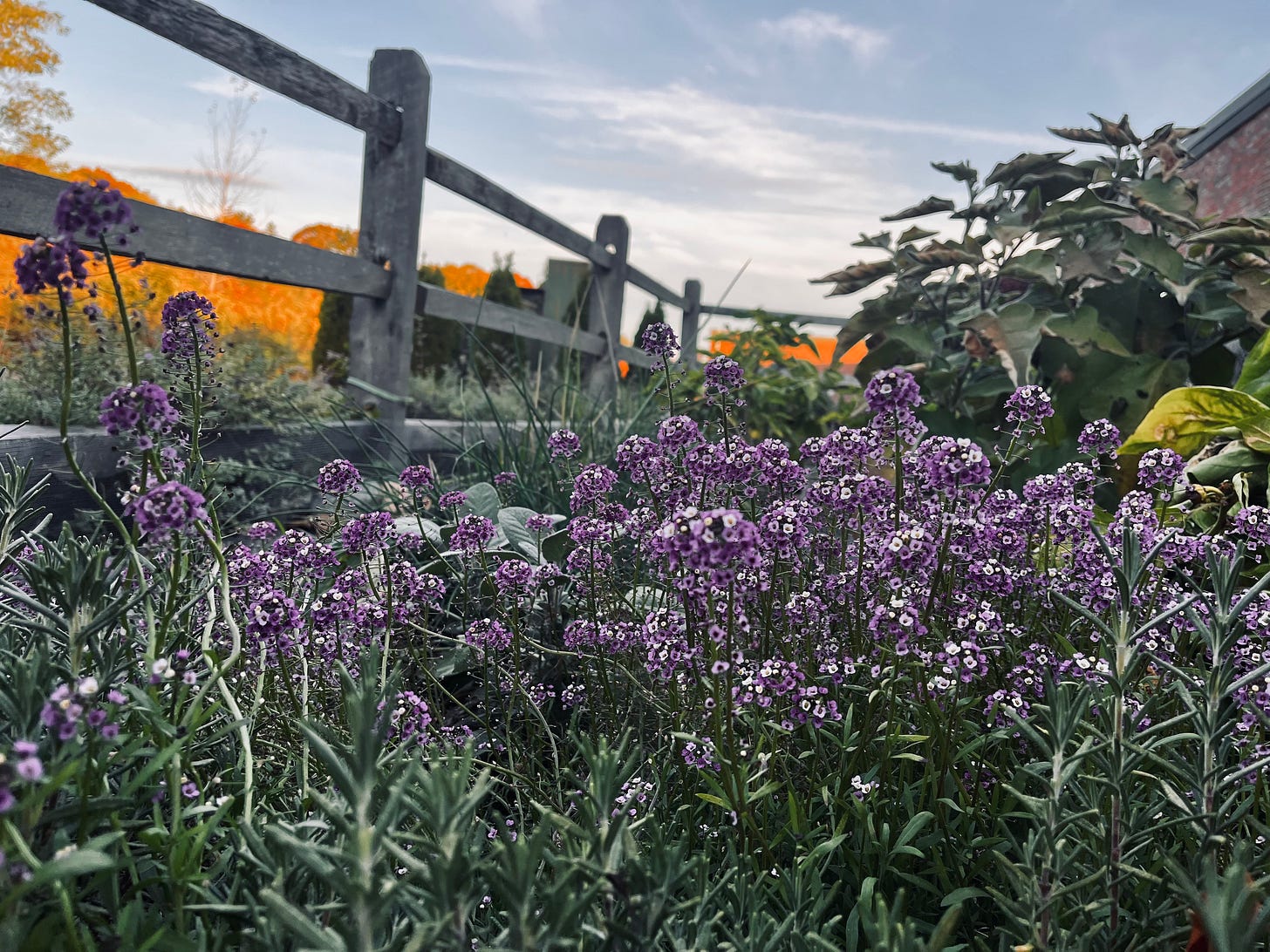The Drying Rack
Something had to be preserved
There are secret places even in the most familiar woods. I’ve been teaching at CCA for fourteen years but still, on certain mornings, when the chickadees are restless in the browned-out oaks and the fog lays malevolently over the fields, I’ll go out on some minor errand toward the garden and get drawn away. A little game trail unskeined like a thread through the scrub will lead me to a clearing and, not two hundred feet from my office window, I’ll stand in a place I’ve never known before.
Sometimes I go outside on business, task-oriented and checklist in hand. Other times, I go on my knees, so to speak, looking for a silence or peace I’m thirsty for, not really paying attention to where I’m headed. If you spend enough time with teenagers, you’ll feel the elation of their triumphs as well as the brutal, idiotic depression of the bad choices and lost causes. At times like that, the woods are a place I go searching for hope in the earth like a buried truffle. Sometimes I find it, sometimes I don’t.
There was a Friday a few weeks ago, one of those primordial Friday afternoons only possible in a school, where an atmosphere settles in the hallways that makes it universally impossible to work. There are different versions of this atmosphere. Sometimes, it affects everyone like a drug, and a slap-happy idiocy infects the whole population, sweeping through the hallways like a disease until even the most rudimentary review session is impossible. On days like that, a lot of nine-square gets played in the CCA parking lot. At other times, the atmosphere is tinged with melancholia. Normally cheerful students stare dumbly into the middle distance, everyone’s blood runs as thick as gelatin and, when the bell finally rings, the halls vacate as if by silent consent, leaving nothing but a few open locker doors moaning on their hinges.
This particular Friday was one of the latter kind, at least for me. In the general quiet, a stream of intrusive thoughts about my hometown of Asheville—its washed-out infrastructure, displaced children, and ruined neighborhoods—found time and space to pester me with the banal persistence of a doctoral examination panel. Not really knowing why, I unlocked the Classical Roots storage closet, pulled out a saw, and headed into the woods. At a dappled place on top of a hill, I found a dead sapling and cut it down. Dragging it back through the leaf-mold smell and sprent needles, I wrangled it free of its whiplike branches and rendered the whole tree into a straightish pole, seven feet long and about the thickness of a roll of cookie dough.
Back in my room, I mounted it to the wall from hooks and swathed it in twine. A drying rack. It’s a simple enough tool: given the right conditions, a well-selected flower hung upside-down from it will desiccate slowly, keeping a pastel ghost of its former shape and color. Dense or thickly-layered blooms are particularly good: roses, hydrangeas, purple salvia, the pale spires of English lavender. I wandered the grounds for half an hour and came back with the heads of blossoms, lashing them to the wood with impromptu knots. There’s a certain morbidity to the task, which may be why I found it comforting. It didn’t matter that the flowers hadn’t been taken in the morning, which is apparently ideal. It didn’t matter that some of them weren’t prone to drying well. I needed to keep busy with my hands. Something had to be preserved.




Your thought process reminds me of Merton. Even the most mundane things in life have spiritual depth…thanks for sharing.
You can take the man out of the mountains, but you can’t take the mountains out of the man! Seems like they’re calling you AJ! Really enjoy your thoughtful comments. Uncle Steve.